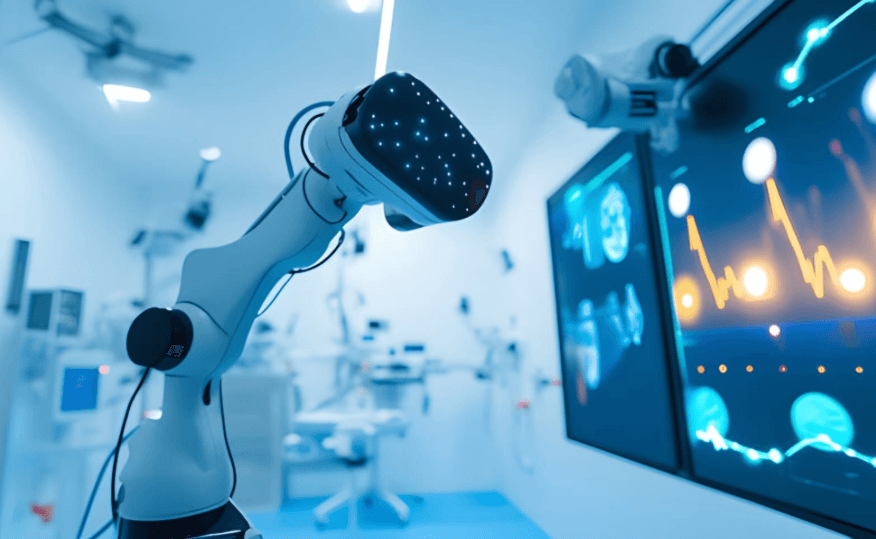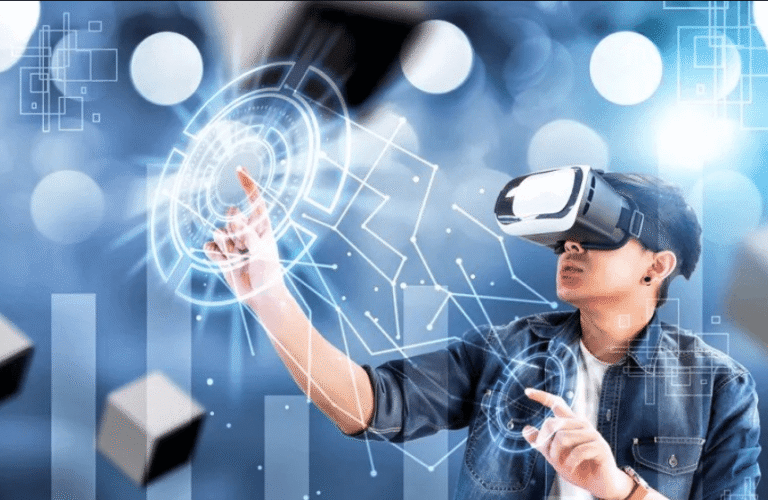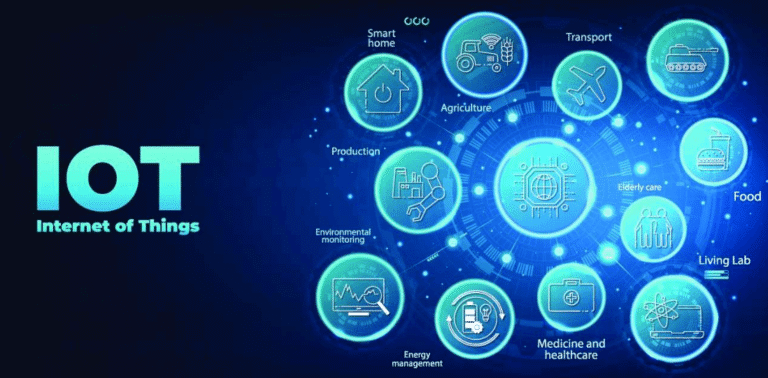The Role of Artificial Intelligence in Modern Healthcare

Introduction
Artificial Intelligence (AI) is no longer just a buzzword in the tech world—it is rapidly transforming industries across the globe, with healthcare being one of the most promising areas of impact. AI has the potential to revolutionize healthcare by improving diagnostic accuracy, personalizing treatment, streamlining administrative tasks, and enhancing patient care. In this article, we will explore the role of AI in modern healthcare, its current applications, the challenges it faces, and the potential for future advancements.
What is Artificial Intelligence in Healthcare?
AI in healthcare refers to the use of machine learning, deep learning, natural language processing, and other AI technologies to analyze complex medical data and support decision-making processes in healthcare settings. By mimicking human cognitive functions, AI can assist healthcare professionals in diagnosing diseases, recommending treatments, and managing patient care more effectively.
The adoption of AI in healthcare has been accelerated by the vast amounts of data generated by electronic health records (EHRs), medical imaging, wearable devices, and genomics. AI systems are able to process and analyze these data sources much faster than humans, enabling quicker, more accurate decisions.
See also: The Role of Artificial Intelligence in Modern Healthcare
How AI is Revolutionizing Healthcare
AI is making a significant impact across several aspects of healthcare, from diagnostics and personalized medicine to robotic surgery and patient care management. Let’s take a look at the most prominent ways AI is being used in the healthcare industry today.
AI in Diagnostics
One of the most promising applications of AI in healthcare is in the field of diagnostics. AI algorithms are being used to help doctors identify and diagnose diseases more accurately and efficiently. These AI tools can analyze medical images, pathology reports, and even genetic data to detect patterns that may not be visible to the human eye.
For example, AI-powered image recognition tools have shown great promise in diagnosing diseases like cancer. AI models trained on vast datasets of medical images can identify early signs of tumors in radiology scans (such as X-rays, CT scans, and MRIs) more accurately than human radiologists. In some cases, AI models have even outperformed human doctors in certain diagnostic tasks.
AI is also being used in genetic diagnostics. With the rise of genomic sequencing, AI can help identify genetic mutations or predispositions to certain conditions, enabling earlier interventions and personalized treatment plans.
Personalized Medicine
AI is playing a crucial role in the development of personalized medicine, which tailors medical treatment to the individual characteristics of each patient. By analyzing data such as genetics, lifestyle, and medical history, AI can help healthcare providers create personalized treatment plans that are more effective and less likely to cause adverse effects.
For example, AI models can analyze genetic data to predict how a patient will respond to certain drugs, ensuring that the medication prescribed is both safe and effective for that individual. In cancer treatment, AI is being used to identify the best combination of chemotherapy drugs based on a patient’s unique tumor characteristics, improving treatment outcomes.
Predictive Analytics and Early Detection
AI-powered predictive analytics can help identify potential health risks before they become critical. By analyzing a patient’s medical history, lifestyle data, and other relevant factors, AI systems can predict the likelihood of developing certain diseases, such as heart disease, diabetes, or Alzheimer’s disease.
This allows for early intervention, enabling doctors to provide preventive care that can delay or even prevent the onset of diseases. For instance, AI models can analyze data from wearable devices, such as fitness trackers, to monitor a patient’s heart rate, blood pressure, and activity levels. If these models detect abnormal patterns, they can alert both the patient and healthcare providers, prompting further investigation or lifestyle changes.
Drug Discovery and Development
AI is also revolutionizing the process of drug discovery. Traditionally, developing new drugs is a time-consuming and expensive process that can take years of research and testing. AI is accelerating this process by analyzing vast amounts of medical data to identify potential drug candidates faster than human researchers could.
Machine learning algorithms can analyze molecular structures, predict how certain compounds will interact with proteins, and screen potential drug candidates more efficiently. AI is also being used to identify new therapeutic targets and biomarkers, further advancing the development of personalized and precision medicine.
For example, in the wake of the COVID-19 pandemic, AI systems were used to accelerate the discovery of treatments and vaccines by analyzing existing compounds and predicting their effectiveness against the virus.
Robotic Surgery and Assistance
AI-powered robots are enhancing the precision and effectiveness of surgical procedures. These robots can assist surgeons by providing real-time data, suggesting the most optimal approach to a procedure, and even performing certain tasks autonomously.
One example of AI in surgery is the da Vinci Surgical System, a robotic surgery platform that allows surgeons to perform minimally invasive surgeries with high precision. The system uses AI to provide real-time feedback on the surgical site, improving the accuracy of procedures and reducing recovery times.
AI can also help during surgery by analyzing patient data in real time, predicting potential complications, and providing alerts to the surgical team if issues arise.
Virtual Health Assistants
Virtual health assistants powered by AI are becoming an increasingly popular tool for both patients and healthcare providers. These AI assistants can interact with patients, answer their health-related questions, provide medical advice, and even monitor chronic conditions.
For example, virtual assistants like Ada Health or Babylon Health use AI to assess symptoms and provide preliminary diagnoses based on the information provided by the patient. They can also offer recommendations for treatment, suggest lifestyle changes, and guide patients on when to seek medical attention.
These virtual assistants are valuable for reducing the strain on healthcare providers and improving access to healthcare, particularly in underserved areas.
Healthcare Administration and Workflow Automation
AI is also being used to automate many of the administrative tasks that healthcare professionals face. These tasks can include scheduling, billing, processing insurance claims, and handling medical records. AI systems can streamline these processes, reducing the workload on healthcare staff and allowing them to focus more on patient care.
For instance, AI-powered chatbots are being used to handle patient scheduling and answer common questions, while AI systems can automate the review of insurance claims and medical billing, reducing errors and speeding up the reimbursement process.
Challenges of AI in Healthcare
Despite its enormous potential, AI in healthcare faces several challenges:
Data Privacy and Security
The use of AI in healthcare requires access to vast amounts of sensitive patient data. This raises concerns about data privacy and security. Healthcare data is a prime target for hackers, and breaches can lead to significant consequences, including identity theft and fraud.
To mitigate these risks, healthcare providers must ensure that AI systems comply with regulations such as HIPAA (Health Insurance Portability and Accountability Act) in the United States, which sets standards for the protection of patient information. Encryption, secure data storage, and multi-factor authentication are critical for safeguarding sensitive health data.
Integration with Existing Systems
Many healthcare systems are still relying on legacy systems and outdated technology. Integrating AI into these systems can be complex and costly, especially in organizations that have not yet adopted electronic health records (EHRs) or digital tools. Achieving interoperability between AI tools and existing healthcare systems is crucial for widespread adoption.
Trust and Acceptance
The success of AI in healthcare depends largely on trust—from both healthcare providers and patients. Many doctors and medical professionals may be hesitant to fully rely on AI for decision-making, especially when it comes to life-altering diagnoses or treatments.
Ensuring transparency in AI models and demonstrating their accuracy and effectiveness is essential to gaining the trust of healthcare providers and patients. Regulatory bodies will also need to create guidelines and standards for the use of AI in medical decision-making.
Ethical Concerns
AI in healthcare raises ethical concerns, especially regarding the use of patient data and decision-making processes. Questions about consent, bias in algorithms, and the potential for AI to replace human healthcare workers need to be addressed. Ensuring that AI systems are ethical, unbiased, and transparent will be critical for their widespread adoption in healthcare.
The Future of AI in Healthcare
The future of AI in healthcare is incredibly promising. As technology advances, AI will continue to improve the accuracy of diagnoses, the personalization of treatment, and the efficiency of healthcare systems. Some potential developments include:
AI-powered telemedicine: Virtual health consultations enhanced by AI can become more accurate and accessible.
Robotic surgeries: Continued advancements in AI will lead to more precise and autonomous surgical procedures.
AI-based mental health care: AI tools could be used to diagnose and treat mental health conditions by analyzing speech, behavior, and physiological data.
AI will also likely play an essential role in managing global health crises, by rapidly analyzing large amounts of data to predict outbreaks, monitor trends, and guide public health responses.
Conclusion
AI has already begun to transform healthcare, from improving diagnostics and personalized medicine to enhancing patient care and streamlining administrative tasks. While challenges such as data privacy, integration, and trust remain, the potential benefits of AI in healthcare are immense. As technology continues to advance, AI will play an increasingly critical role in revolutionizing healthcare systems worldwide, leading to better outcomes for patients, more efficient processes for healthcare providers, and more personalized, data-driven care.





